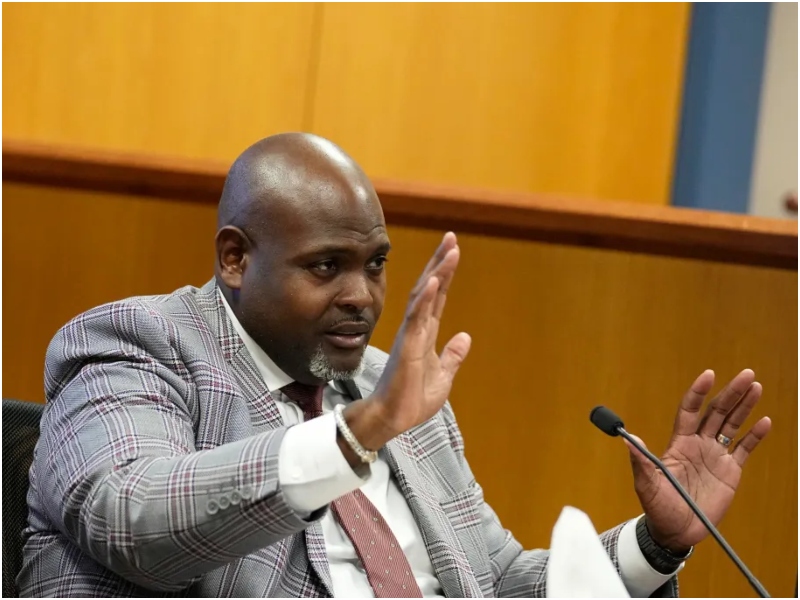A pretrial hearing in the racketeering (RICO) case against Donald Trump and others took an unexpected turn on Tuesday afternoon, Feb. 27.
This was due to what appeared to be an unforced tactical error by a special prosecutor working for the Fulton County District Attorney’s Office.
During the hearing, divorce attorney Terrence Bradley, a key witness, repeatedly responded with “I don’t recall” to questions about the romantic relationship between District Attorney Fani Willis and special prosecutor Nathan Wade.
Bradley’s testimony, often evasive and at times contradictory, cast a shadow over the proceedings.
The ongoing turmoil in the case began in early January when co-defendant Michael Roman, a former Trump 2020 staffer, publicized Willis’ romantic relationship with Wade.
Roman’s motion to have Willis and her office disqualified from the case gained traction, leading to a series of legal battles.
While the first day of the hearing established conflicting testimonies regarding the timeline of the relationship, the second day focused on Bradley’s role and testimony.
Despite attempts by defense attorneys to elicit clear answers from Bradley, his responses remained vague and evasive.
Bradley’s testimony was further complicated by a surprising revelation late in the day, when the state accused him of sexual assault, undermining substantial portions of his prior testimony.
The judge ruled that attorney-client privilege had not been properly applied, allowing the hearing to continue.
Throughout the proceedings, Bradley maintained that he had no first-hand knowledge of the relationship between Willis and Wade and frequently cited speculation.
Defense attorneys expressed frustration with Bradley’s testimony, suggesting that he was not being truthful under oath.
As the hearing concluded, Bradley’s testimony left more questions than answers, highlighting the complexity and uncertainty surrounding the case against Trump and his co-defendants.
In the coming days, the legal battle is expected to intensify as the defense seeks to capitalize on the uncertainty surrounding the relationship between Willis and Wade, while the prosecution aims to maintain its case against the defendants.

